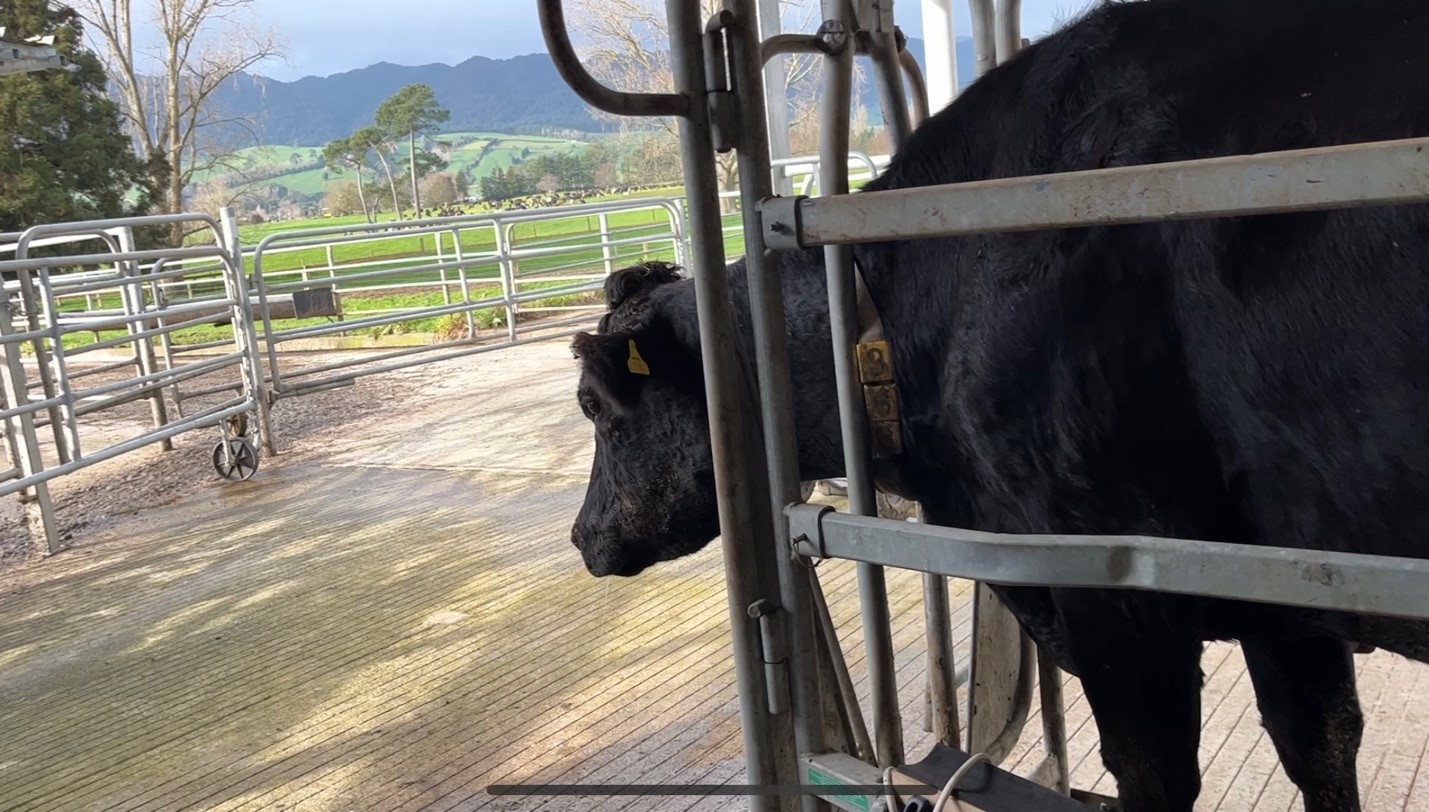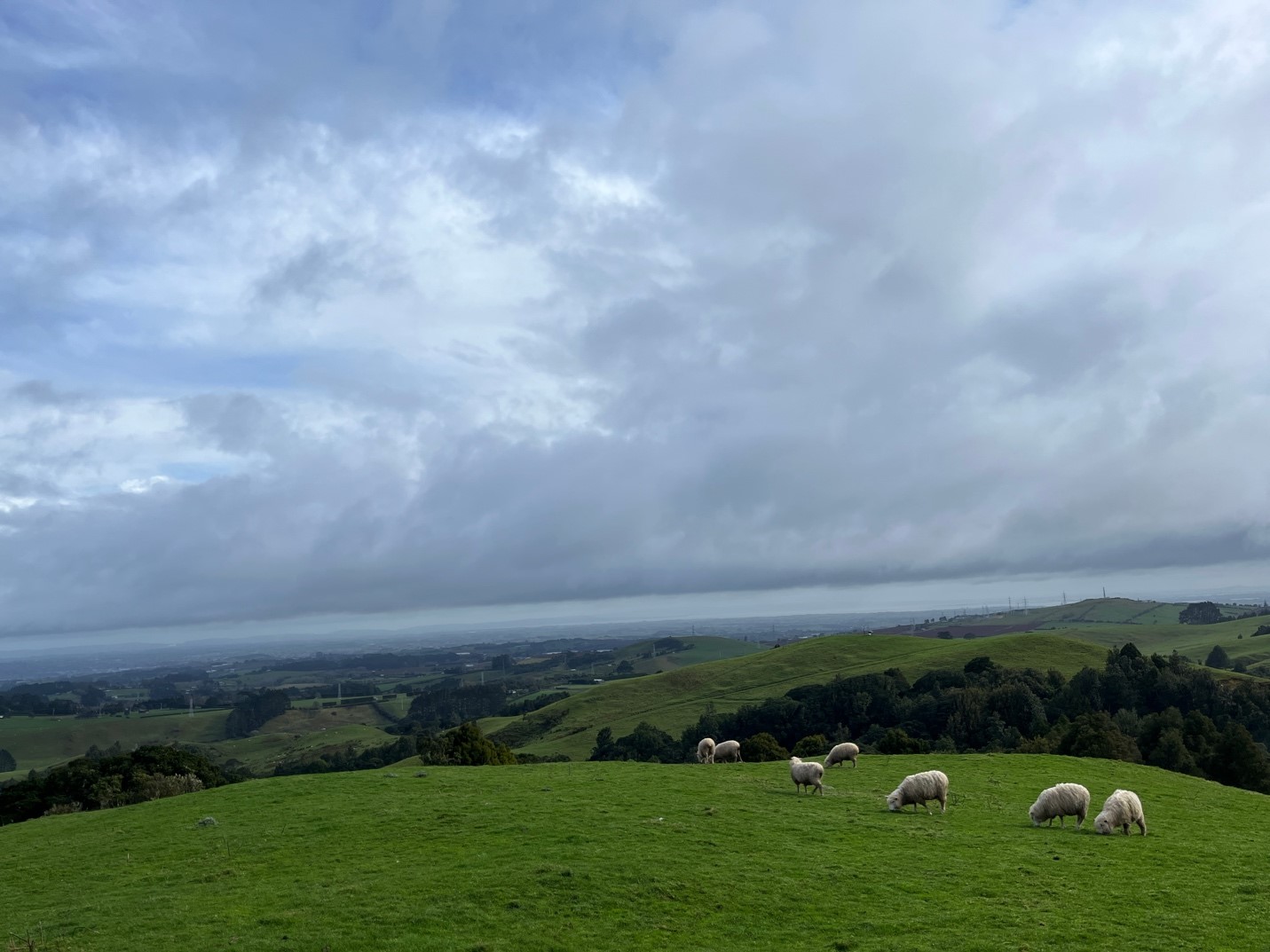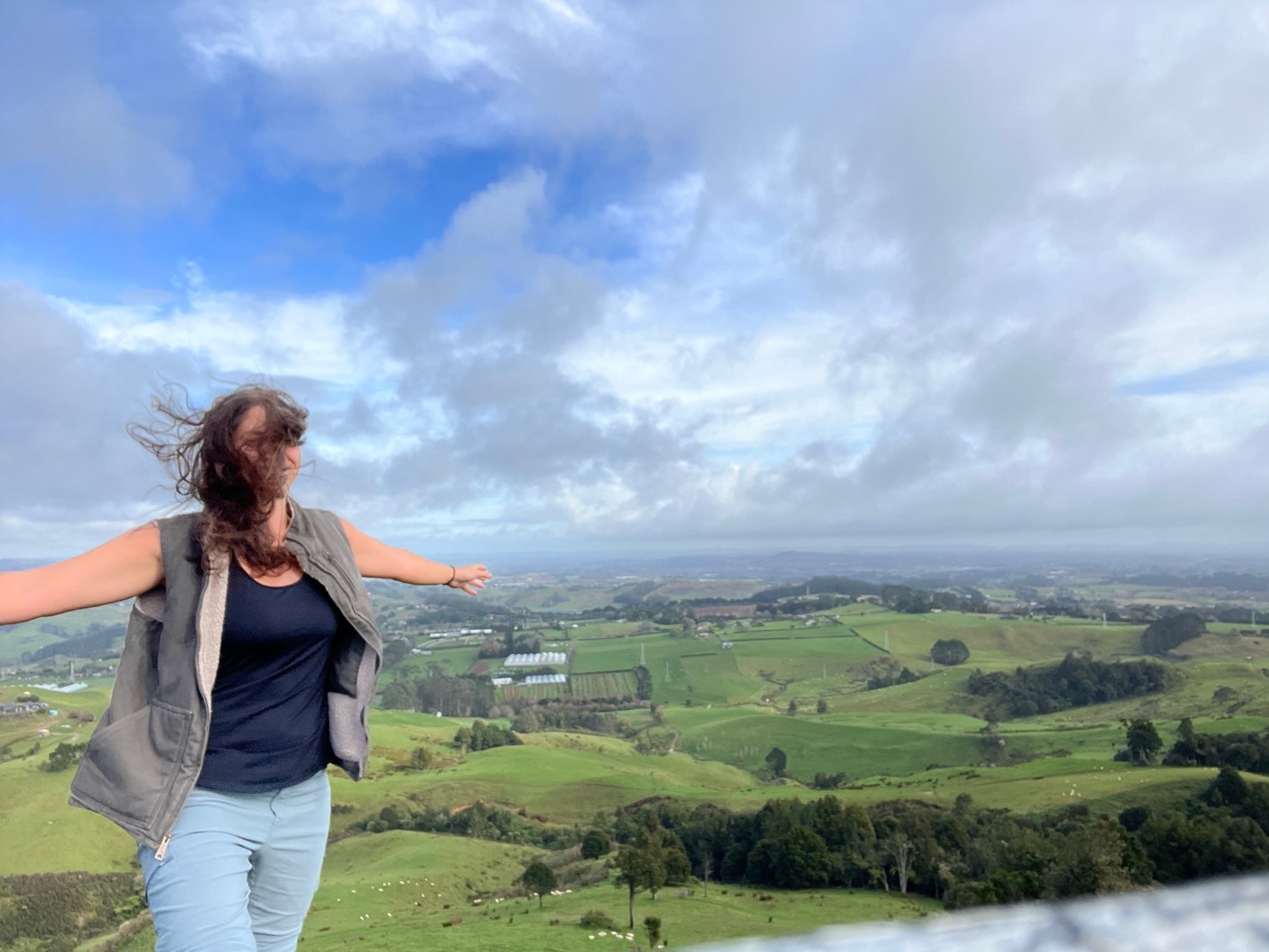Shoshana Brody
I spent two weeks in July externing at Farm Veterinary Matamata (FVM) in New Zealand. I have been interested in the dairy industry of New Zealand since I started working in agriculture at 15 years old. In the spectrum of animal agriculture across the world, the country is unique in its seasonal production schedule that is based on the availability of forage during calving season. While US dairy farms have calves born every day of the year, almost all dairies in New Zealand have their calves during the months of July and August, driving the dairy production for the whole country. I have had a long-standing interest in calving management and neonatal calf care so traveling to New Zealand during mid-July offered a scale of experience with periparturient diseases and dystocias that I could not achieve in the United States.
FVM is a six-doctor ambulatory practice located about an hour and a half south of Auckland in an area with extensive dairy production. During my time at the practice, I had the opportunity to participate in the management of a wide variety of cases even taking the lead on several dystocias. The veterinarians were excited to teach students and we had many discussions about the differences between veterinary medicine in New Zealand and the United States. I enjoyed the laid back practice culture and the collaboration that came from a multi-doctor practice. Every day, around 10am everyone would sit down together to discuss cases for the day. The more experienced vets were happy to mentor and talk through cases with the newer members of the team. This is a clinic model that I would like to incorporate into my workplace in the future.

This experience increased my cultural awareness by immersing me in the daily life of a New Zealander. I stayed with a family that lives in Matamata, had traditional meals, and learned about the social and political climate of the country. I also learned more about the rich Māori history of the country. The Māori new year, Matariki occurred during my trip. It was amazing to see everyone celebrating this holiday centered around remembering the past, celebrating the present and looking to the future. Another important aspect of Matariki is being connected to the land that we live in. My hikes and other adventures took me to some of the most beautiful places in New Zealand and I was able to appreciate the unique flora and fauna that live there.
My time in New Zealand was definitely the highlight of my fourth year so far. I truly did not want to leave and hope to be able to return one day, maybe even to practice. I am very thankful to Global Programs for making this opportunity possible. I was able to fulfill a lifelong dream and learn techniques that will be vital to my career as a veterinarian. I also appreciate the hospitality of the veterinarians and staff at Farm Veterinary Matamata. Finally, thank you to Dr. Fauna Smith who encouraged me to embark on this trip and provided many great tips about navigating New Zealand.

The dairy industry in New Zealand is unique in that it relies heavily on the availability of grass. This means that almost all of the cows in the country calve during two months of the year when there is the most feed. I really enjoyed the collaborative nature of the practice as they discussed cases while sitting down for a mid morning tea together. During the weekends I explored New Zealand and learned more about the rich Māori history of the country. The Māori new year, Matariki occurred during my trip. It was amazing to see everyone celebrating this holiday centered around remembering the past, celebrating the present and looking to the future.

